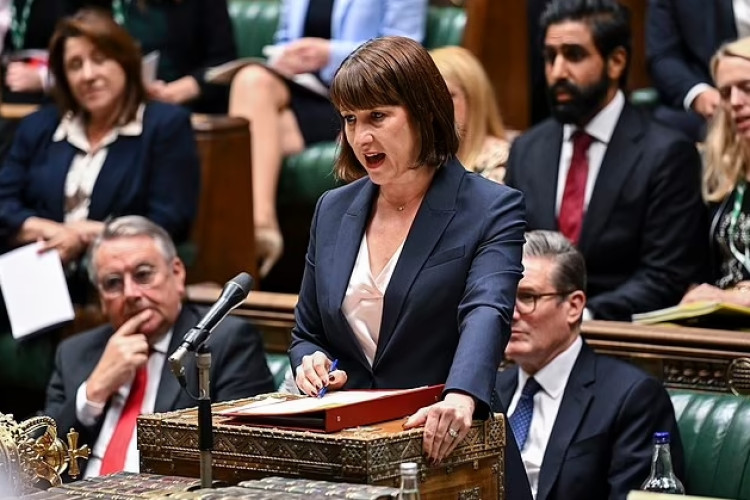THIS time, the pitch rolling did its job – up to a point. As the Chancellor delivered her Spring Statement to the Commons (very much not a Budget, her aides insisted), her speech contained no fresh nasty surprises for restive Labour MPs.
True, Rachel Reeves had to find some overnight extra savings on top of her package of welfare cuts after an intervention from the Office for Budget Responsibility (OBR), the scope of which remains her most pressing immediate political problem from her own side.
If there was a ‘rabbit’ produced from her hat it was a small mangy animal – in the shape of growth forecasts which were slightly up in future years compared with the OBR’s predictions last October. This year’s forecast was halved to 1 per cent, as had been widely trailed.
The increases were thin gruel, with annual growth expected to be 1.8 per cent in 2029. The average household would be £500 a year better off under Labour than under the previous government, the Chancellor crowed.
Businesses were at least spared any more tax pain after the big National Insurance raid of last autumn. There was a nod to the key role of AI in transforming the civil service and new opportunities for tech firms in defence procurement, which was framed in terms of jobs across the country.
As she sat down, however, the OBR’s fine print sounded a warning about the government’s flagship Employment Rights Bill, which it said was likely to have ‘negative economic impacts on employment, prices and productivity.’
The fear is that there may be further tax rises in the autumn – though the Chancellor’s allies say they are doing everything possible to avoid this and they would have to be dragged ‘kicking and screaming’ to the point where it happened.
Reeves sheltered behind the foundation stones of the economic ‘project’ she and Keir Starmer launched before the general election with constant references to ‘security’ and ‘working people’. “We will never put household finances in danger,” she pledged, to jeers from the Opposition benches, despite what she characterises as a ‘changing world’.
‘THE PARTIES OPPOSITE’
While the Chancellor took aim once again at the Tories for leaving the economy with a £22billion black hole, her speech was a major recognition than that the focus on the opposition has shifted towards a party that currently only had five MPs elected (now minus the suspended Rupert Lowe).
Using research undertaken some weeks ago, Labour is focusing on a relatively small group of voters, possibly 15 per cent of the electorate, who could back any of Labour, the Tories or Reform at the next election, as its pathway to renewed success.
Recent welfare cuts and defence spending increases – justifiable though both may be in terms of the domestic and international situation – should be seen in that context.
And today the Chancellor repeatedly denounced ‘the parties opposite’ for failing to her back her growth-boosting plans, bringing both Kemi Badenoch and Nigel Farage into her sights.
However, with forecasts of an extra 250,000 people (50,000 of them children) being pushed into poverty by the end of the decade because of welfare cuts, the party threatening the most serious political trouble for Reeves and Starmer could be their own.
The Chancellor would argue that she is damned if the does and damned if she doesn’t – and that government means hard choices. Labour MPs are getting a dose of political reality along with their thin gruel.






